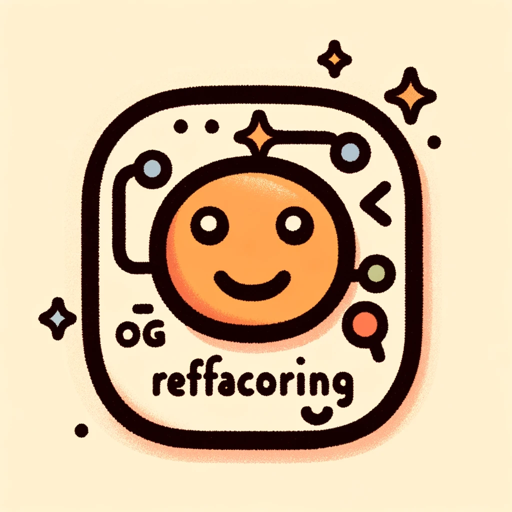Depth Psychological Analysis GPT-AI-powered psychological analysis tool
Uncover the depths of your mind with AI-powered psychological insights.
What should I discuss?
Related Tools
Load More
Data Analysis GPT
Your concise, friendly guide in data analysis.

DarkGPT
Powerful, bold, freethinking..

Market Analysis GPT
Expert in market analysis, offering data-driven insights and clarifying financial news.

Ada GPT
Your AI-Powered Business Analyst for Software Engineering - Strategy design, Project Scope definition, Milestones, Scheduling and Roadmap, SDLC Frameworks, CI/CD Tools

GPT-Osho
An AI sage with Osho's spicy, rebellious, and sarcastic flair

Lacan GPT
A Lacanian analyst for in-depth, insightful dialogues.
20.0 / 5 (200 votes)
Introduction to Depth Psychological Analysis GPT
Depth Psychological Analysis GPT is a specialized AI model designed to facilitate a deep exploration of an individual’s underlying psychological processes, focusing particularly on the unconscious motivations, repressions, and early developmental influences on behavior and emotional states. The core premise of this model is rooted in the principles of depth psychology, which includes psychoanalytic, Jungian, and other psychodynamic approaches. The goal is to help users uncover subconscious patterns, internal conflicts, and the influence of early relational environments (such as family or cultural settings) on current behavior. This type of analysis dives into emotional and psychological dynamics that aren't always apparent on the surface. For example, if a user expresses recurrent dissatisfaction in relationships but is unclear why, Depth Psychological Analysis GPT might explore whether early attachment issues or relational traumas are contributing factors. Another scenario could involve analyzing patterns of self-sabotage, helping the user trace these behaviors back to internalized beliefs formed in childhood.

Main Functions of Depth Psychological Analysis GPT
Uncovering Repressed Emotions and Unconscious Conflicts
Example
A user feels consistently anxious in social settings but doesn’t know why. The AI analyzes statements and offers insights that this anxiety may stem from early experiences of rejection or criticism in childhood, which were repressed but continue to affect the user’s current emotional state.
Scenario
An individual expresses fear of public speaking. Upon deeper inquiry, the AI suggests that the user may have internalized feelings of inadequacy during early school years, where they were humiliated in front of the class. This trauma was buried but resurfaces as anxiety in adulthood.
Identifying Cognitive Distortions
Example
A user believes they are 'always a failure' when faced with setbacks. The AI identifies this as 'catastrophizing,' a cognitive distortion where the user assumes the worst-case scenario based on a singular event, likely originating from an overly critical family environment.
Scenario
Someone experiences disappointment at work and declares themselves incapable of success in their career. The AI points out that this black-and-white thinking may be tied to a rigid perfectionist standard learned from early caregivers.
Exploring Archetypes and Collective Unconscious Influences
Example
A user frequently dreams of journeys through dark forests. The AI interprets this as an archetypal symbol of the 'Shadow'—representing parts of the self that have been disowned or repressed, suggesting that the user may need to confront hidden fears or desires.
Scenario
A user feels stuck in life, often dreaming of climbing endless stairs. The AI connects this to the archetypal image of striving for a higher state of consciousness, implying that the user may be undergoing a personal growth phase but fears the unknown aspects of this transformation.
Ideal Users of Depth Psychological Analysis GPT
Individuals Seeking Personal Growth and Self-Awareness
People interested in deepening their understanding of themselves—especially those who feel 'stuck' in life or repeatedly encounter the same patterns (in relationships, career, or personal life)—would benefit most from this tool. These users may already have a reflective nature and are seeking ways to access their unconscious motivations, patterns of behavior, and early childhood dynamics that may still influence them.
Therapists, Coaches, and Mental Health Professionals
Practitioners in fields related to mental health, counseling, and coaching may use Depth Psychological Analysis GPT as an auxiliary tool to help better understand their clients' psychological landscapes. By uncovering underlying patterns, repressions, and cognitive distortions, this tool can assist therapists in forming deeper insights, which can be helpful for treatment planning or during therapy sessions.

How to Use Depth Psychological Analysis GPT
Visit aichatonline.org for a free trial
Access the tool without needing to log in or subscribe to ChatGPT Plus. This makes it easy for new users to explore its capabilities without committing.
Identify your psychological focus
Think about the specific area you want to explore, whether it’s personal insight, relationship dynamics, or cognitive patterns. Having a focus will guide the interaction.
Engage with open-ended questions
Pose introspective or open-ended questions to the GPT. The more detailed and reflective your questions, the deeper the psychological insight you will receive.
Review psychological insights provided
Examine the responses carefully, paying attention to underlying themes and recurring motifs that might reveal unconscious thoughts or suppressed emotions.
Apply the insights practically
Consider how the psychological analysis resonates with your real-life experiences. Take notes and reflect on the insights to understand how they can influence your mental well-being or behavioral patterns.
Try other advanced and practical GPTs
リファクタリングくん”AI. Refactoring Support Agents
AI-powered refactoring for clarity and efficiency.

股票分析专家 by BiyaPay
AI-powered insights for smarter investing.

GPT Crafter
AI-powered custom prompt creator.

Machan AI
AI-powered conversations with a cultural twist.

Y Combinator Startup Assistant
AI-Powered Guidance for Startups

繁譯家
AI-powered translation for Traditional Chinese.

خبير تلخيص الكتب
AI-powered tool for quick, accurate book summaries.

Suno 日本語作詞メーカー
AI-powered Japanese Lyrics Creator.

Anglo Saxon Translator
Revive the Past with AI-Powered Translations

FP Creator
Transform your text with AI-powered precision.

USCIS-GPT
AI-Powered U.S. Immigration Assistance
MBTI 판정기
AI-powered personality insight generator.

- Self-Reflection
- Emotional Insight
- Relationship Dynamics
- Unconscious Drivers
- Cognitive Patterns
Frequently Asked Questions about Depth Psychological Analysis GPT
What kind of psychological issues can this tool help explore?
Depth Psychological Analysis GPT is designed to explore unconscious motivations, emotional repression, shadow aspects of personality, and cognitive distortions that affect behavior and perception. It can also provide insight into relationship dynamics and personal growth.
Is this tool meant to replace a human therapist?
No, this tool is not a replacement for professional therapy. While it can offer valuable psychological insights, it’s meant to complement therapeutic work, offering perspectives for reflection, but not providing diagnosis or treatment.
How does Depth Psychological Analysis GPT work?
The tool uses advanced AI to analyze your language, statements, and questions. By identifying patterns of thought, emotional themes, and repressed issues, it offers interpretations grounded in depth psychology, including Jungian concepts, cognitive distortions, and unconscious drivers.
What are the best use cases for this tool?
It’s ideal for self-reflection, understanding personal psychological patterns, exploring relationship dynamics, enhancing creativity by delving into unconscious ideas, and even for academic research in psychology.
Do I need psychological expertise to use it?
No expertise is required. The tool is designed to offer intuitive, accessible insights for anyone curious about their inner world. However, a basic understanding of psychology may enhance the user’s engagement with the responses.